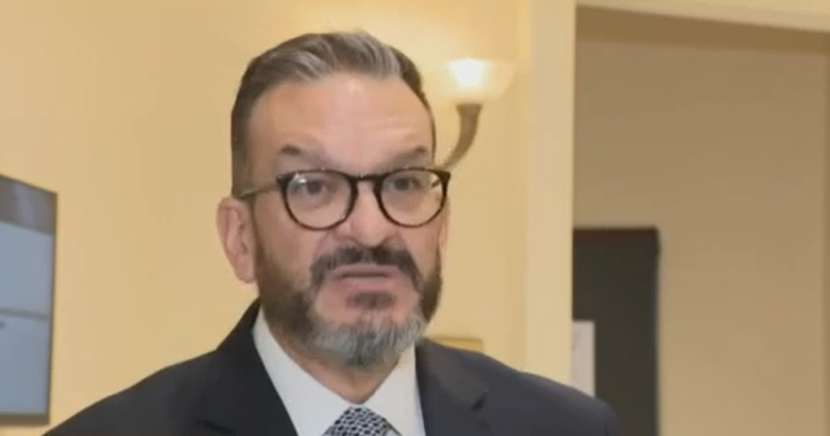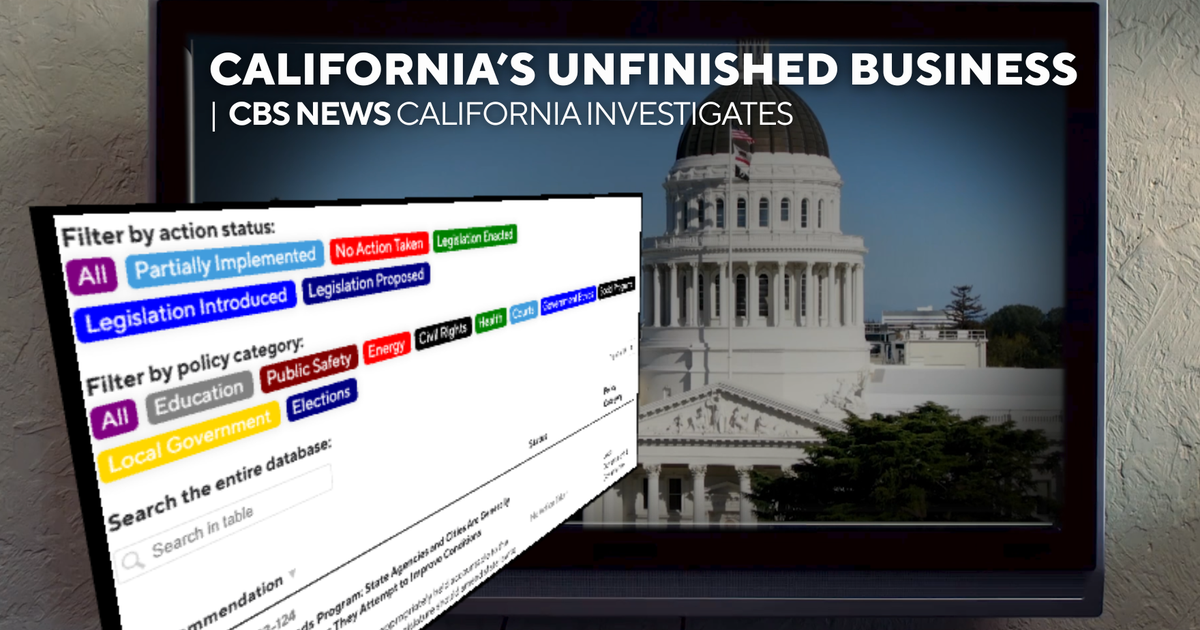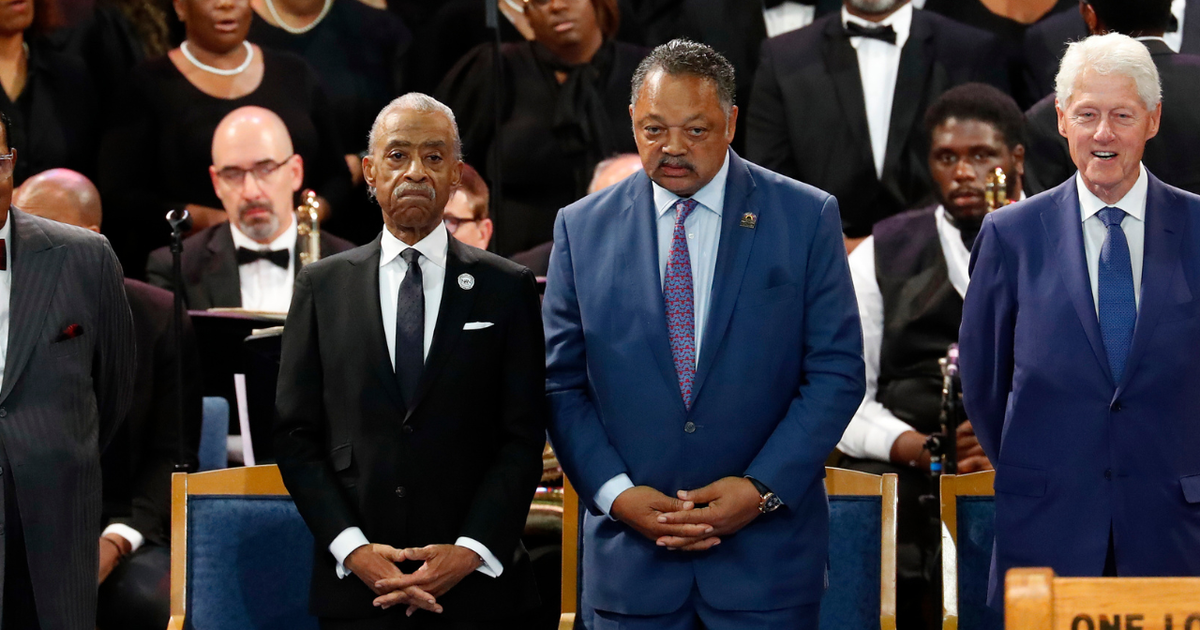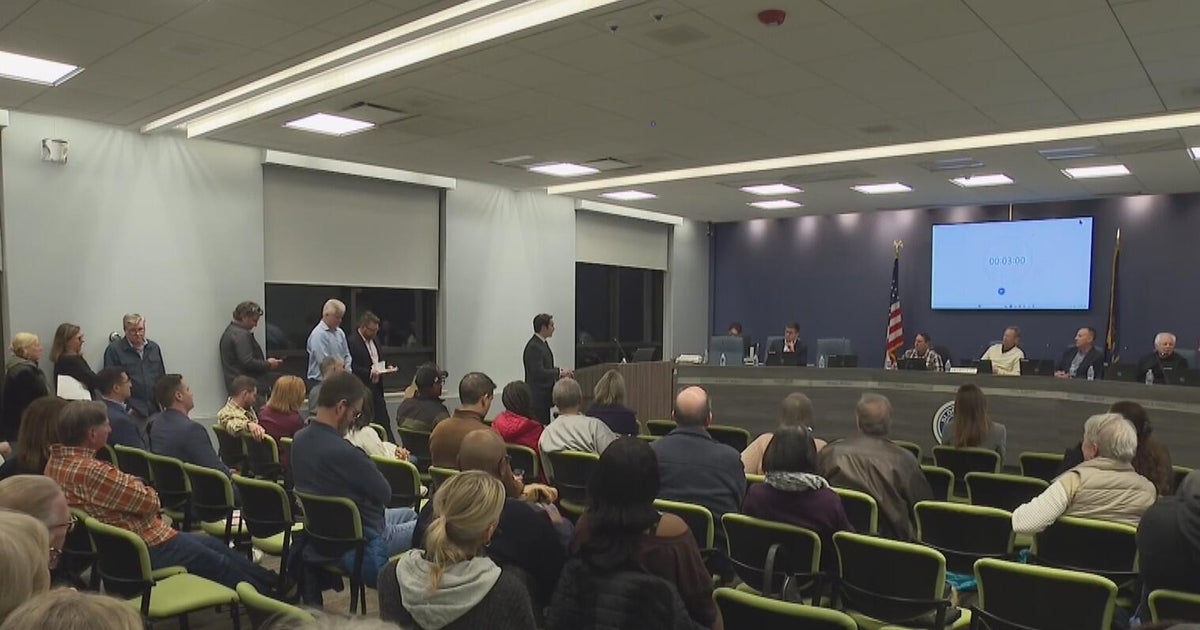Maryland lawmakers reach crossover deadline in session
BALTIMORE - The Maryland General Assembly headed into the last three weeks of its annual legislative session on Monday, advancing legislation on its deadline known as "crossover day." That's when bills need to be approved by one chamber and sent over to the next, or else face a greater challenge to passage.
Gov. Wes Moore appeared upbeat and smiled often at an early afternoon news conference. The Democratic governor spoke about the progress of his legislative agenda, even though the Democratic-controlled legislature has made changes to some of his proposals.
"No one is losing sight of the fact that this administration is moving with a new sense of collaboration with the members of the Maryland General Assembly," said Moore, who is following two-term Republican Larry Hogan as Maryland's chief executive.
One of the most notable changes lawmakers have made to the governor's legislative package was to his push to speed up the state's minimum wage to $15. While the measure will increase the minimum wage to $15 in January, instead of in 2025 as lawmakers approved several years ago, lawmakers took out a provision in the governor's proposal that would have included automatic increases by indexing the wage to adjust for inflation.
"I personally support indexing, but I'm also not losing sight about what we're about to accomplish," Moore said.
The governor also highlighted an expansion of tax credits that had been set to expire for low-income residents. The legislation would make permanent an expansion of the state's earned income tax credit approved in 2021 for tax years through 2022. The measure also would expand the state's child tax credit.
Moore also stood by his nominee to become superintendent of the Maryland State Police, Acting Superintendent Roland Butler. Butler has been getting some scrutiny by senators who have questioned whether the longtime state police veteran is the right person to lead needed change in the agency. The U.S. Justice Department announced last year it has opened an investigation to determine if the agency engaged in racially discriminatory hiring and promotion practices.
Butler, who would be the agency's first Black superintendent, needs Senate confirmation to get the job.
"I think Col. Butler, because he has come up through the ranks in this moment, is uniquely prepared to lead, is uniquely prepared to fix a culture that we know needs fixing and that we know needs addressing," Moore said.
Meanwhile, lawmakers kept working to pass legislation as the 90-day session headed down the stretch.
A measure to expand procedures relating to gender-affirming care that are covered by the state's Medicaid program advanced in the Senate on Monday, after the House passed a similar bill on Saturday. The state's Medicaid program currently limits gender-affirming care to a handful of procedures.
"There are other procedures that are really medically necessary for gender-affirming care that are not currently covered under the state Medicaid program, and that's what this bill intends to do," said Sen. Clarence Lam, a Howard County Democrat.
Sen. Justin Ready, a Carroll County Republican, spoke in support of an amendment to specifically add language spelling out the need for parental consent in the legislation, because the expansion includes procedures like plastic surgery, or cosmetic surgery.
"It's a nice safety amendment," Ready, who is the Senate minority whip, said of the amendment sponsored by Sen. Johnny Mautz, of the Eastern Shore.
But supporters of the legislation as it is written pointed out that parental consent already is required in the law, and the amendment failed.
High-profile measures such as protections for the right to abortion and licensing provisions needed for opening a recreational cannabis market by July 1 already have passed either the House or the Senate. Lawmakers will be working in the last three weeks to take final votes to send the measures to Moore, who has expressed support for the legislation.
Gun control legislation also has advanced, after U.S. Supreme Court struck down a New York law last year that was very similar to Maryland's "good and substantial reason" standard for permits to carry concealed handguns. The House and Senate have two different measures to address changes in the legal landscape created by the high court's Bruen decision.







